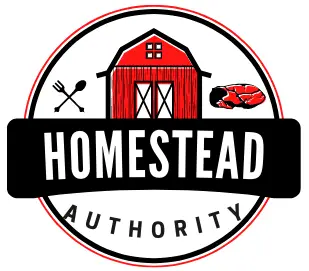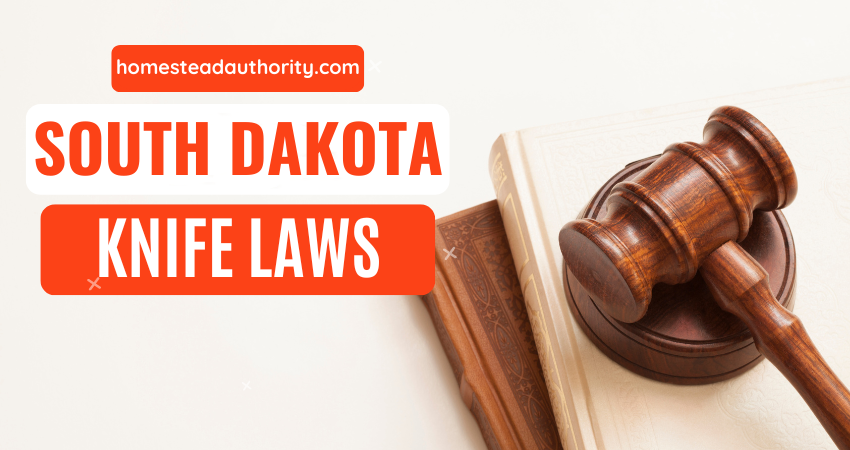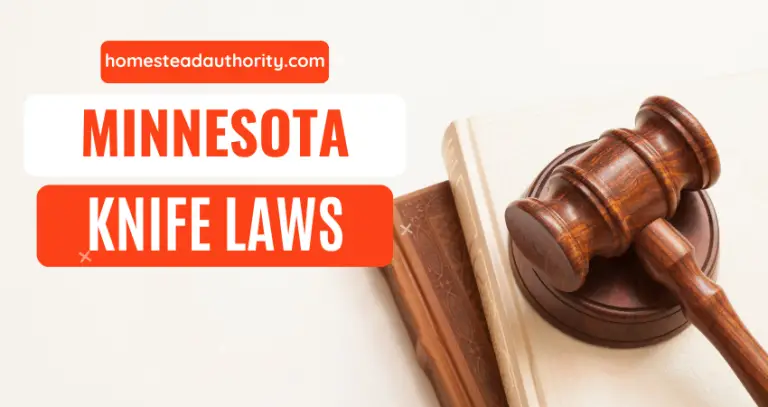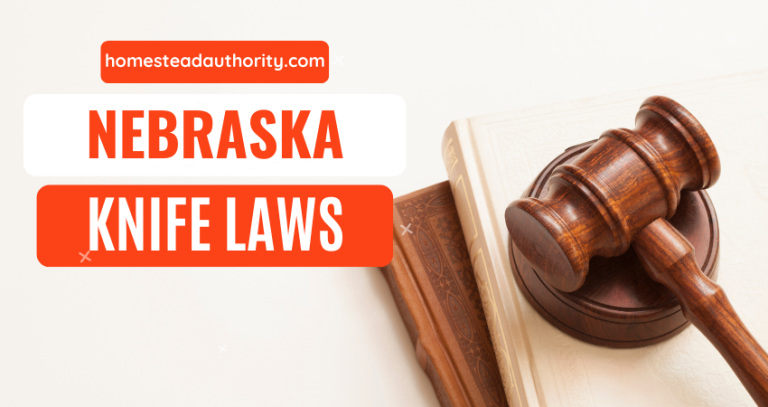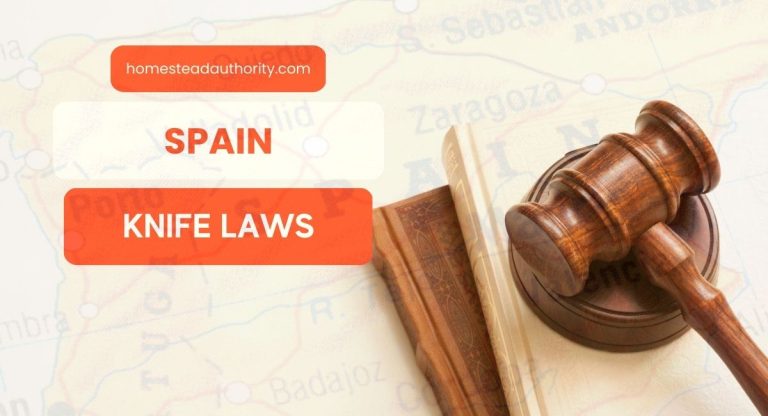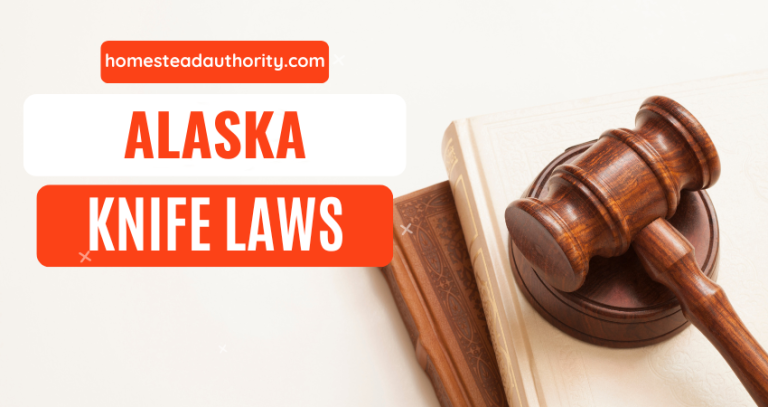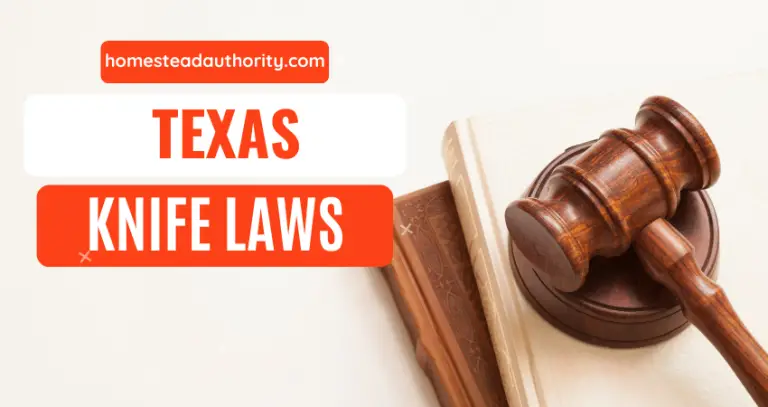Understanding South Dakota’s Knife Laws: What You Need to Know
South Dakota is known for standing tall on knife freedom. After repealing the last antiquate knife law in 2006, the state barely has laws covering knives.
Therefore, it’s legal to carry absolutely any type of knife in South Dakota.
There are no general restrictions based on the knives’ type, blade length, or any other physical feature. However, a statute in South Dakota’s Codified Laws includes knives in the list of dangerous weapons allowing a few restrictions to be applied on knives.
They’re mostly location-based restrictions like you can’t carry a knife in the public schools, county courthouses, or state capitols.
A general restriction on concealed carry of the knife is applicable if it’s carried with the intention of committing a felonious act. The restrictions are backed by penalties as they’re considered a punishable offense.
Continue reading the article to know every detail of the South Dakota Knife Laws.
Legal Facts At A Glance
Here we’ve got some key legal facts about knife laws in South Dakota; check them out at a glance.
Preemption
In South Dakota, there’s no statewide preemption. So any major city may or already have its own set of restrictions on knives.
Concealed Carry
The South Dakota State Law only forbids the concealment of firearms, and it isn’t legally applicable to knives or other bladed weapons.
So the state laws permit concealed carry of knives unless carried with the intent of committing a felony.
No-Go Zones
Since knives fall into “dangerous weapons” according to SDCL § 22-1-2, there’re certain no-go zones where possession of knives is prohibited aside from licensed personnel or badged law enforcement officers.
The zone includes places like courthouses, public schools, and state capitol buildings.
Major Cities With Knife Ordinances
Some major cities in South Dakota have municipal ordinances for knives. The cities or municipalities that have enacted ordinances restricting concealed carry of knives include Sioux Falls, Rapid City, Sturgis, and Aberdeen.
On the other hand, Deadwood is the only municipality to enact ordinances restricting the unconcealed carry of knives.
Do Restrictions On Dangerous Weapons Apply To Knives In South Dakota?
Generally, South Dakota’s knife laws are non-existent, meaning it’s legal for anyone in the state to own and open or conceal carry knives regardless of their type.
However, the statutory definition of “dangerous weapon” helps apply a few limited restrictions over carrying or possessing knives in South Dakota.
According to South Dakota Codified Laws statute § 22-1-2, a dangerous weapon can be a firearm, knife, or any other object, animate or inanimate, calculated to inflict death or serious bodily harm.

For example, a stun gun is a dangerous weapon, but so is a knife or a heavy rock when used to hurt someone seriously. In case you’re wondering about the definition of “serious bodily injury,” the South Dakota State statute 22-1-2 (Definition of terms) has the following definition.

List Of Illegal Knives In South Dakota
The South Dakota Codified Laws don’t recognize any category or sub-category of the knife.
So if you’re wondering what size knife is legal to carry in South Dakota, the answer is all! In fact, you can possess all the variants of knives you want.
The ownership, selling, or manufacturing of ballistic knives in the state was once forbidden by the South Dakota statute § 22-14-19. But the SL 2005, ch 120, § 258, later repealed the regulation on July 1st, 2006.

Since then, there’s been no restriction on the types of knives for the residents or visitors of South Dakota. They can even make, sell, and buy any kind of knife, just like other consumer goods.
Knives Restrictions In South Dakota
South Dakota doesn’t have laws covering knives in general; however, relevant statutes consider carrying, concealment, or possessing knives illegal in specific cases.
We’ll check out these cases in detail below.
Illegality Due to the Concealment of Knife with the Intent of Committing Felonious Act
According to SDCL 22-14-8, you can see that concealing a dangerous weapon is a punishable felony or criminal offense when one does it with a criminal intention, and that’ll be considered a Class 5 Felony.

The law doesn’t directly talk about knives, but from the SDCL section 22-1-2, we’ve seen the definition for “dangerous weapons” includes knives, so the statute applies to all kinds of knives only if they’re concealed with the intention to commit a crime.
But if you conceal carry a knife without felonious intent, you haven’t violated the statute, nor have you committed a crime.
Illegality In Certain Areas
The inclusion of knives in the SDCL statute § 22-1-2 as dangerous weapons makes their intentional possession illegal in specific locations in the state, irrespective of whether any person is endangered by it or not.
Two separate statutes cover the illegality of knives in two different locations —
- The buildings, premises, and vehicles of the public elementary or secondary schools
- County Courthouse and State Capitol Buildings
Let’s take a better look at the illegality of knives in both these areas.
A. Knife Restrictions in the Premises, Buildings, or Vehicles of the Public Elementary or Secondary Schools
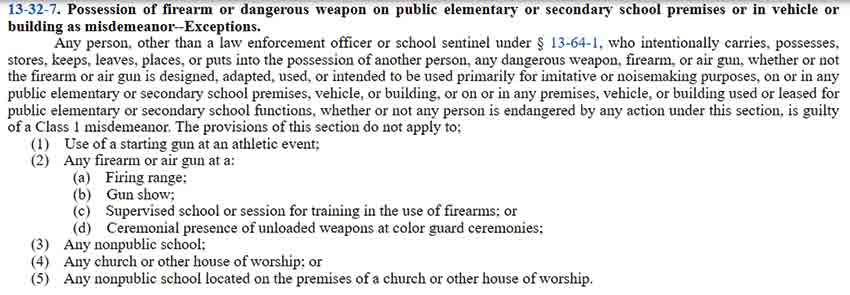
The section clearly states that a person (other than badged law enforcement officer or school sentinel) will commit a class 1 misdemeanor if they possess, carry, store/keep, leave, or place/put any dangerous weapon (which also includes knives according to SDCL section 22-1-2) in the premises, building, or vehicle of a public elementary or secondary school.
So the open or concealed carry of any type of knife in public elementary or secondary schools is a punishable offense. The section also mentions excluding nonpublic schools and other places from the provision.
B. Possession In County Courthouse Or State Capitol
It’s illegal to knowingly possess or carry any firearm or dangerous weapon, including a knife, to a county courthouse or state capitol. If anyone does or attempts to do so will commit a class 1 misdemeanor, which is a punishable offense.
It includes an exception in the statute § 22-14-24, which we’ll discuss later.

Municipal Ordinances For Knife Restrictions In Major Cities
South Dakota doesn’t have statewide preemption laws for knives, which allows municipalities to enact their own knife restrictive ordinances.
Currently, there are five municipalities or major cities in SD with knife restrictions. Four (Aberdeen, Sioux Falls, Sturgis, and Rapid City) prohibit concealed carry of knives, while Deadwood prohibits concealed carry of knives.
The illegality of the knives across these cities varies based on the knife type and length of their blade. We’ll find out more details about these municipal ordinances in SD below.
Aberdeen
Aberdeen is a major city in South Dakota, and their municipality has enacted the above ordinance prohibiting concealed carry of knives as it comes under the dangerous weapon, according to SDCL.
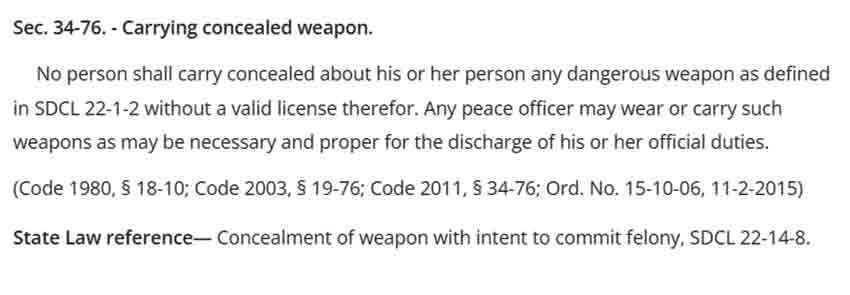
Since there’s no mention of knife type or dimension, don’t conceal or carry any knife if you’re a resident of Aberdeen or visiting it to avoid misdemeanor or felony charges.
Sioux Falls
Sioux Falls is another major city in South Dakota to restrict concealed carry of knives according to SDCL . Their restriction isn’t for all types of knives, but some particular types, including dagger, dirk, and bowie knife.

Rapid City
Rapid City is a major South Dakota city with an ordinance restricting legal knife length. It prohibits concealed carry of any knife with a blade more than 3 inches long.

The prohibition separately mentions sharp and dangerous weapons, which can include any knife regardless of its type and length. You can’t conceal carry a knife in Rapid City, even for self-defense.
Sturgis
Sturgis is a major city in SD, known as the home for motorcycle rallies, and has a restrictive knife ordinance that prohibits concealed carry of knives for everyone in the city except the badged cop or a person having an SD concealed handgun permit or out-of-state reciprocal equivalent.

The law mentions certain types of knives exclusively, such as dagger, bowie, and kirk knife, but it also mentions dangerous weapons that can cause death or serious bodily harm.
Since a knife is considered a dangerous weapon, according to SDCL, you must restrain from the concealed carry of all kinds of knives to avoid any misdemeanor or felony charges.
Deadwood
To date, Deadwood is the only major municipality in SD to restrict the unconcealed or open carry of knives on public transport according to the law.

The prohibition list includes bowie and dirk knife exclusively, but since the term dangerous weapon also includes all types of knives, you mustn’t open carry any knife on public transport.
Are There Any Restrictions Regarding The Selling, Manufacturing, Importing, Or Trading Knives In South Dakota?
South Dakota has no knife restrictions regarding its state’s manufacturing, selling, importing, or trading.
However, there’s one federal law, particularly about switchblade knives, known as the Federal Switchblade Act, that prohibits the manufacturing, transportation, and distribution of switchblade knives for interstate commerce.
So the interstate commerce of switchable blade knives is restricted as per federal law in all states of America, including South Dakota.
Penalties And Punishment For Carrying Illegal Knives
A person carrying knives illegally in South Dakota may face legal consequences like imprisonment or a fine.
Let’s see the possible punishment for illegal knife possession in the state.
Concealment Of Knife With The Intent Of Committing Felony
If someone conceals carrying a knife with the intent to commit a felonious act, he’ll be charged with a class 5 felony.
If found guilty, the punishment could include up to 5 years imprisonment in the state penitentiary along with $10,000 in fines or up to 1-year imprisonment in the county jail.
Willful Possession Of Knife As A Dangerous Weapon In The Prohibited Areas
We’ve seen you can’t possess a knife in places like school premises, vehicles, country courthouses, or state capitols. A person who knowingly owns a knife in these places will be charged with committing a class 1 misdemeanor.
If found guilty, the punishment or penalty for class 1 misdemeanor in South Dakota is 1-year imprisonment in county jail, or $2,000 in fines, or both.
Exceptions In The Knife Law Of South Dakota
Possession of a dangerous weapon, including a knife, in a County Courthouse or State Capitol is a class 1 demeanor according to the statute § 22-14-23. But there are penalty exceptions stated in § 22-14-23, which are as follows:
There’s a long list of penalty exemptions, which mainly includes badged cops, retired law enforcement officers, government officers, employees, agents, judges, magistrates, armed service officers, licensed personnel, and county courthouse employee or personnel possessing it for a lawful purpose.
Conclusion
South Dakota has one of the lowest violent crime rates in the US, ranking in the 31st position with 399 cases per 1,00,000 people.
The FBI UCR or violent crime data for 2019 suggests that a knife was used as the murder weapon in only 3 out of 19 cases.
So there isn’t enough concern about knife posing threats to the safety of the state’s citizens; hence the South Dakota knife laws show high regard for knife rights for the residents or visitors.
You may have good reasons to open or conceal carry knives, but make sure you don’t have an intent to commit a crime to avoid a felony charge.
Also, be careful about carrying knives in restricted locations like public schools or courthouses. Sadly South Dakota doesn’t have a statewide preemption, so cities can have their own restrictions.
We’ve mentioned restrictive knife ordinances in cities that enacted them, so make sure to abide by them.
